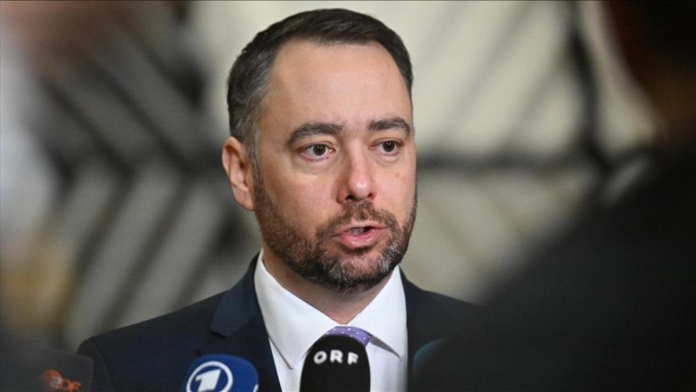Belgian Foreign Minister Maxime Prévot has declared that Belgium will recognise the State of Palestine at the United Nations General Assembly later this month. The announcement marks one of the most significant steps taken by a European country in response to the ongoing humanitarian crisis in Gaza and the West Bank.
Prévot, who is also Belgium’s Deputy Prime Minister and a member of the Christian Democrat party, confirmed the decision on social media, saying that Palestine will be recognised officially during the UN session. This recognition is tied to conditions, including the release of all captives from Gaza and the assurance that Hamas will no longer play a role in governing Palestinian territories.
Belgium’s recognition joins a growing list of nations that have already acknowledged Palestinian statehood. As of earlier this year, nearly three-quarters of UN member states had extended recognition to Palestine. The decision aligns Belgium with other countries such as France, where President Emmanuel Macron announced in July that his government would recognise Palestine during the UN gathering.
Copenhagen puts Brussels on edge: Denmark backs tariffs and trade suspensions against Israel
Belgian Prime Minister Bart De Wever, from the Flemish nationalist party, had previously said that recognition should be linked to strict conditions. Prévot’s announcement confirms that Belgium will move ahead despite political debates inside the country.
12 Sanctions Announced Against Israel
Alongside the recognition of Palestine, Belgium is imposing 12 sanctions on Israel. These sanctions are described as “firm” by Prévot and are meant to respond to what Belgium views as violations of international law in the occupied Palestinian territories.
Among the sanctions is a ban on the import of products that come from Israeli settlements in the West Bank, which are widely considered illegal under international law. Another measure involves reviewing public procurement policies with Israeli companies, a move that could limit business ties between Belgian institutions and Israeli firms.
Putin says Russia and China reject trade sanctions that create unfair barriers
The announcement comes at a time when other nations are also considering measures against Israel. Last month, Dutch Foreign Minister Caspar Veldkamp resigned after failing to secure government support for stronger sanctions. Belgium’s decision may now put pressure on its European neighbours.
Israeli Finance Minister Bezalel Smotrich, known for his far-right positions, had warned last year that Israel would establish a new settlement for every country that recognised Palestine. Smotrich is one of two Israeli ministers already facing sanctions from countries including Australia, Canada, New Zealand, Norway and the United Kingdom.
Global Context and Humanitarian Situation
The announcement from Belgium arrives against the backdrop of the devastating war in Gaza. According to official figures, more than 63,000 people have been killed and over 160,000 injured since the start of the conflict. The humanitarian toll has sparked widespread outrage, with international agencies warning of famine in northern Gaza. A UN-backed monitor recently confirmed that famine is already occurring in some areas and could spread further south by the end of September.
Dutch foreign minister Caspar Veldkamp resigns after cabinet rejects tougher Israel sanctions
Calls for sanctions and arms embargoes on Israel have been growing from international human rights experts. Francesca Albanese, the UN Special Rapporteur on human rights in the occupied Palestinian territory, has urged countries to take stronger measures, including sanctions and an arms embargo. Belgium’s move to apply 12 sanctions appears to be one of the strongest responses from a Western government so far.
Meanwhile, the United States has strongly opposed such recognitions. U.S. Secretary of State Marco Rubio criticised France’s plan as a “reckless decision” and announced that President Donald Trump’s administration will deny and revoke visas for Palestinian officials ahead of the UN General Assembly in New York.
France and Saudi Arabia are set to co-host a meeting on Palestinian recognition during the UN session on September 22, with several Western allies expected to join. Belgium’s decision also follows legal action inside its own borders. In July, Belgian prosecutors referred a war crimes complaint against two Israeli soldiers to the International Criminal Court, alleging their involvement in atrocities during the Gaza war.
By tying recognition of Palestine to conditions and introducing strong sanctions on Israel, Belgium under the leadership of Maxime Prévot is positioning itself as one of the most outspoken European countries on the issue. The decision reflects the growing urgency felt by many nations as the humanitarian crisis in Gaza worsens and international calls for accountability increase.


